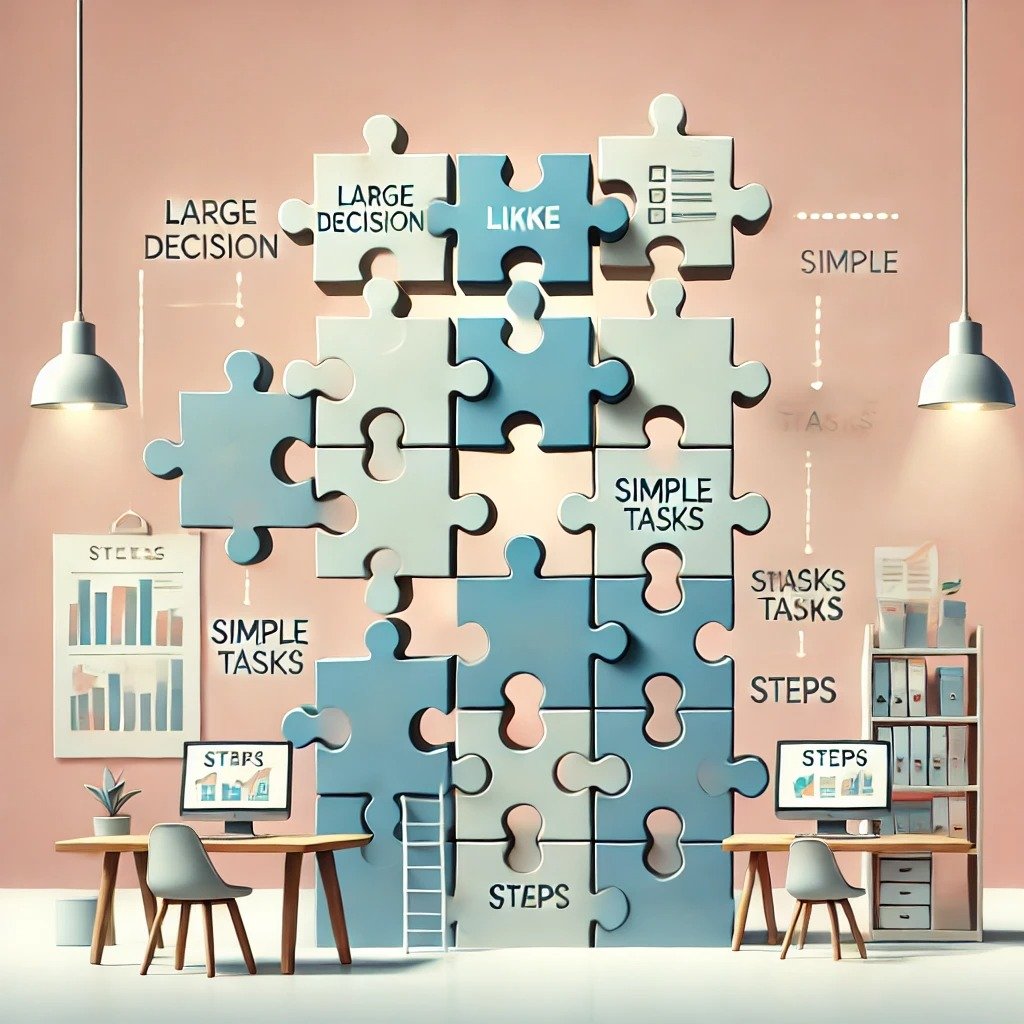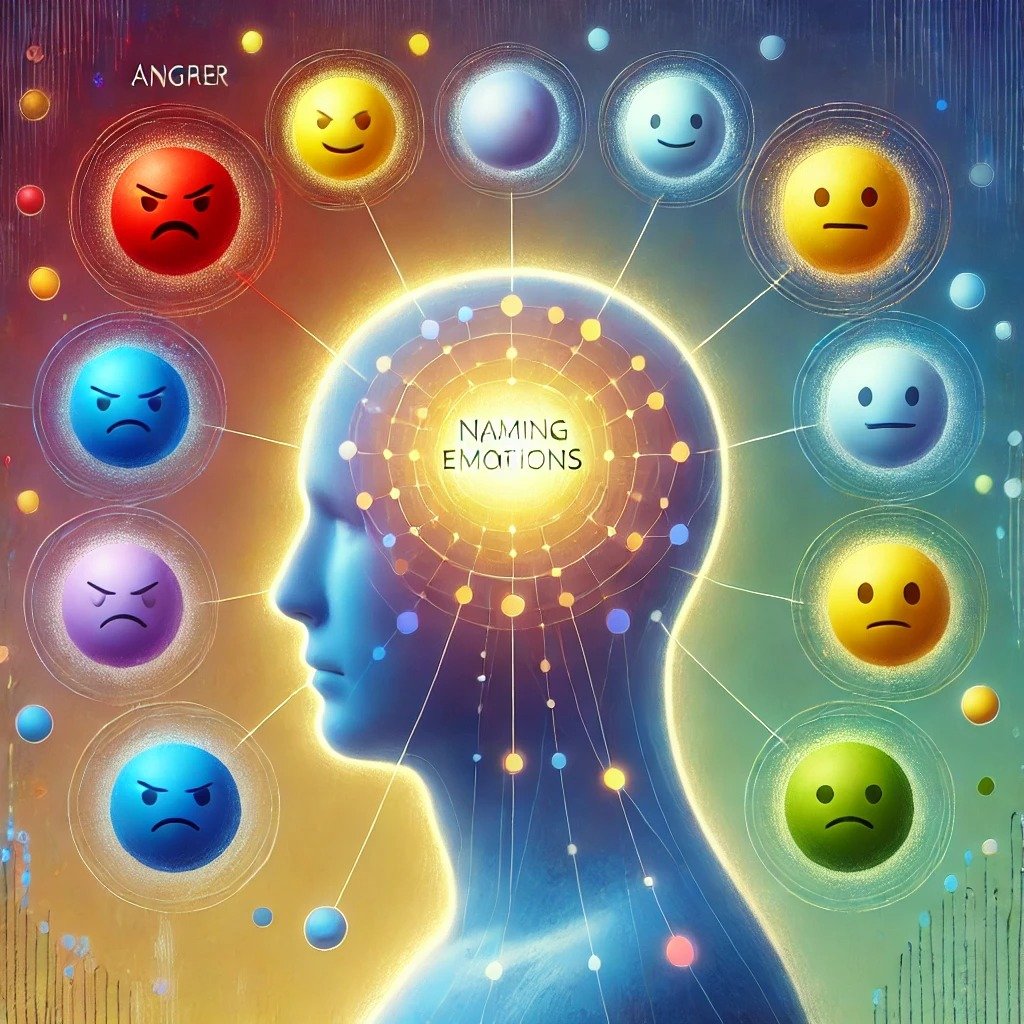As we approach the close of another year, it's a great time to reflect on the insights we've gained and the habits we've formed over the last 12 months. Behavioural science offers a powerful lens through which we can better understand why we do what we do—and, more importantly, how we can improve and thrive in the year ahead.
This compendium brings together our behavioral science tips from 2024. Whether you're looking to boost your productivity, improve your health, foster stronger relationships, or make more space for yourself, these tips are designed to provide practical, science-backed strategies to help you achieve your goals. As we turn the page on 2024, let these insights inspire positive change and guide you toward your best self in the year to come.
February 2024:
Strengthening the Important Skill of Judgment
As we look to the year ahead, we will be faced with many judgments. How often do we stop to think about how we are making those judgments? In the Judgment Playbook from Character Lab, we are offered a few tips to help us make better judgments:
• Focus attention on the principles of how you are deciding as opposed to the decision itself
• Try not to jump to conclusions
• Break decisions into bite-sized chunks
• Take an “outside view” and consider what other people have decided in similar situations or when faced with similar problems
• Leverage multiple different perspectives
• Try to identify and separate your hopes and fears from facts and beliefs about the decision
Adapted from Judgment Playbook by Olivier Sibony and Daniel Kahneman for Character Lab
March 2024:
WOOP There It Is
WOOP is a scientifically tested tool in mental imagining that can help set priorities, fulfill wishes, and change habits. By imagining a positive outcome and contrasting that outcome with its biggest obstacle, people are (somewhat surprisingly, perhaps) more likely to fulfill desires.
Carve out some quiet, distraction-free time and mental space to do the following:
Identify a wish
Identify the best outcome of fulfilling that wish
Anticipate the main obstacle to fulfilling that wish
Make an ‘if/then’ plan
From WoopMyLife.org, created by Drs. Gabriele Oettingen and Peter Gollwitzer
April 2024:
Harmonizing the Mind
Are you supportive of organ donation but not certain if you are registered as a donor? If so, how does that make you feel?
Cognitive dissonance is that uncomfortable feeling you get when your actions don’t align with your beliefs. It can also occur when you’re holding two conflicting beliefs at one time. You might feel cognitive dissonance if you strongly believe in organ donation but aren’t sure if you’re registered as a donor.
While this feeling can cause anxiety and embarrassment, it can also encourage us to take action to fix the misalignment. In the example above, this might mean taking the time to verify or update your organ registration status.
Where else do you recognize cognitive dissonance in your life? Taking action might not always be the best way to relieve this psychological discomfort. You might want to consider changing your beliefs to align with your actions, changing how you perceive your actions, or working on tolerating your opposing beliefs through mindfulness.
May 2024:
Along the Path
This month, we offer tips to assist in your reconciliation journey.
Keep a visual reminder in your space to help bring reconciliation to mind. This can be a laptop sticker, a Moose Hide Campaign pin, a print-out of 6 Actions of ReconciliACTION, and/or a piece of art .
Don’t know where to start your reconciliation journey? Choose a favourite hobby or interest and explore how it relates to reconciliation. For example, if you’re a hockey fan, explore how Indigenous individuals and communities have contributed to the sport. Or if you’re an avid reader, check out books by Indigenous authors like Cherie Dimaline, Katherena Vermette, and Angeline Boulley. Whatever your hobbies may be, there is sure to be an avenue for further learning.
Recognize that reconciliation is a deeply personal process and can bring feelings of discomfort. If you discover areas of discomfort, consider using last month’s advice on cognitive dissonance as a way through.
Tips courtesy of Stephanie Papik. Listen to her Calling DIBS episodes (#26, 41, and 80) for more!
June 2024:
Don't Lose Hope
Whether you have climate anxiety or are trying to wrap your mind around the polycrisis, it’s common to feel overwhelmed when thinking about the challenges we face in our modern age. In the face of uncertainty about the future, we may experience persistent worry, depression, or learned helplessness.
Don’t lose hope! There are things that can help:
Recognize or even try to name your emotions. Acknowledge that your emotions are a valid response to uncertainty.
Practice reappraisal. Deliberately change how you think about a situation by seeking novel perspectives or by distancing yourself from your feelings or beliefs about it to potentially see a different view.
Engage in actions that increase your sense of self-control. Act on even the smallest thing that feels like a positive contribution to your community, to the issue, or to your own well-being.
Give yourself and others compassion. Applying some care and understanding to both yourself and others will help with feelings of isolation – we’re in this together, after all.
September 2024 #1:
Joys of Saying No
Following the summer break, many of us are looking at fall calendars that are full to the point of bursting! As we know from the planning fallacy, we tend to underestimate how much time tasks will take and this can lead us to overcommit. At the same time, it can be hard to prioritize and to say “no”. This month’s Choice Tip shares expert advice from authors of The No Club:
Understand what you’re saying yes to: What is it? Does it align with your priorities and values? What resources and how much time are needed? How much support will you have?
Consider the opportunity cost: What other tasks or events will you miss or not be able to do if you commit to this?
Make it easier to say “no”: Rather than answering immediately, give yourself time to reflect and then respond when you’re not in the pull of the moment.
Make “no” easier to hear: Rather than simply saying “no”, try the three-step Yes-No-Yes Technique: say "yes" to yourself by recognizing your needs and that you can’t do what the requestor has asked, say “no” to the request, and then help the requestor by finding something you can say "yes" to.
NOTE: The No Club recognizes that women are often given an uneven share of non-promotable tasks at work. The authors’ advice is specifically aimed at helping women say “no” in this context. We hope that this advice empowers our women readers faced with this imbalance! More generally, we’re all better served when we are mindful about our commitments and we know when and how to say “yes” and “no”. After all, saying “no” to requests that are not a fit leaves time and energy for great events like a certain conference on November 1 😉
Adapted from The No Club website
September 2024 #2:
Monotasking is Demure, Mindful
We hate to break it to you, but we’re not as good at multi-tasking as we think we are. Task-switching, which is required to multi-task, is taxing on mental resources and usually means we perform worse on all tasks than if we tackle them one by one.
Next time you try to attend to something, whether it’s the BIG Difference BC conference or something else, monotasking will make it both more enjoyable and more memorable.
To make it easier to monotask, plan ahead to block the time by pre-setting an out-of-office notice on your email.
To increase your focus even further, you can put a temporary stop on notifications and close your email inbox!
September 2024 #3:
One is Fun, But Two (or More) is Better
This one may be less surprising, but we often enjoy things more when we share them with friends. Making plans with others also has the side benefit of increasing our commitment since we don’t want to bail on our friends or have to report back that we didn’t follow through on our promise.
Next time you have a goal, like attending the BIG Difference BC conference, think about inviting someone else along to increase your likelihood of following through, and to make it more enjoyable when you do.
To make it social, plan to participate in the conference with a friend, or to debrief afterward to discuss your takeaways.
To really up the social factor, plan or attend a watch party. This can be as simple as booking a conference room to meet in and inviting people from your organization to join in. Either way, bonus points for fun snacks!
October 2024:
Happy You, Happy Climate
This month’s tips are pulled from our keynote speaker Dr. Jiaying Zhao’s happy climate approach:
We can make climate-friendly actions more attractive by adopting changes that both reduce our carbon footprint and have positive effects on our well-being. Here are a couple of climate-friendly actions and how they can make you feel better:
Eat more plants – eating more fruits and veggies increases your nutrients and decreases inflammation in your body.
Drive more people - carpooling with friends or colleagues makes transit time social and fun. Carpool karaoke, anyone?
For more tips, check out JZ’s keynote address from BIG Difference BC 2024!
November 2024:
Finding Joy
As we learned from JZ’s keynote presentation, catalyzing a feeling of joy, when appropriate and ready, can be beneficial in not only behaviour change but in reaching our own goals. We include some tips to increase joy and equally important tips on how to overcome barriers to joy.
Increasing joy:
Practice gratitude for the positive and beautiful things in life, however small.
Create achievable goals and celebrate when you reach them.
Engage in activities you enjoy. This may seem obvious, but make the time for what you love, whatever that may be.
Overcoming barriers to joy:
Manage stress as best you can. Try relaxation techniques such as box breathing.
Practice positive self-talk to overcome habits of negative self-talk or defeatism.
Build resilience by developing or maintaining a growth mindset and learning from adversity.
“Don’t ask what the world needs. Ask what makes you come alive and go do it. Because what the world needs is people who have come alive.”
― Howard Thurman (from JZ’s presentation, Nudging Climate Action & Happiness)
Note: Images have been generated with ChatGPT based on the content of each tip. 









